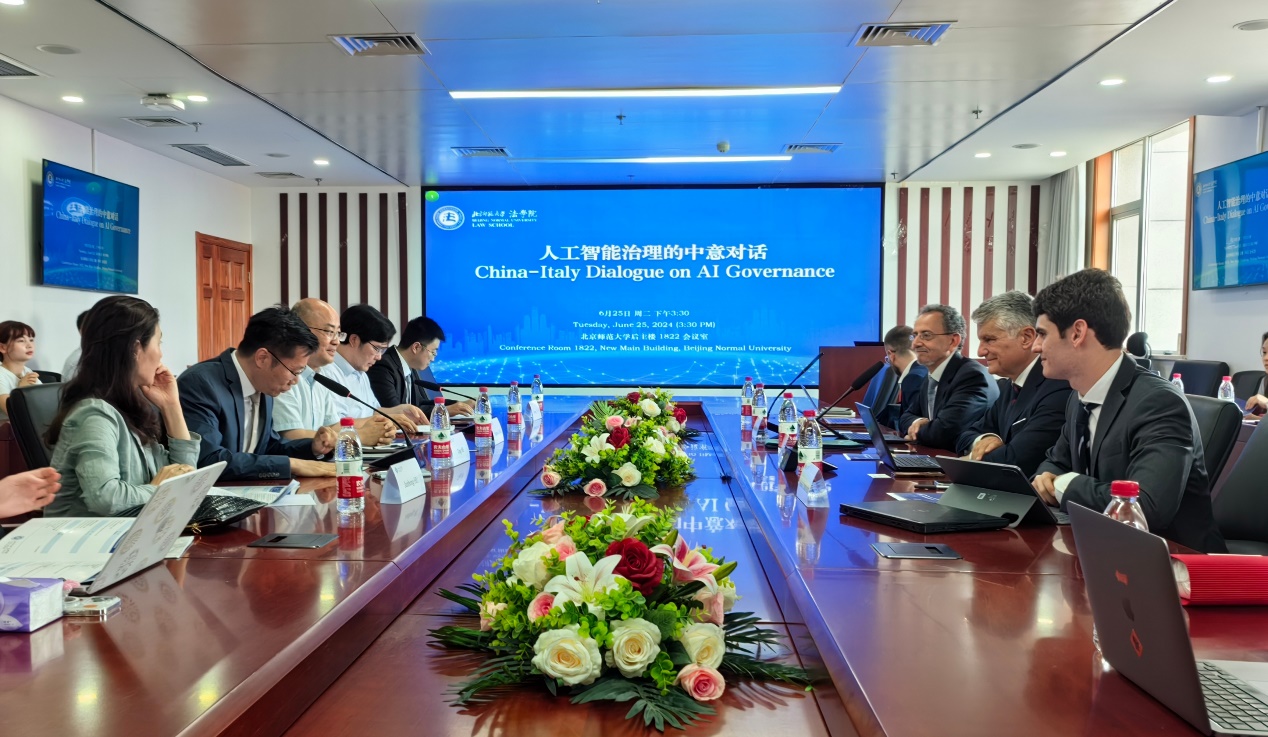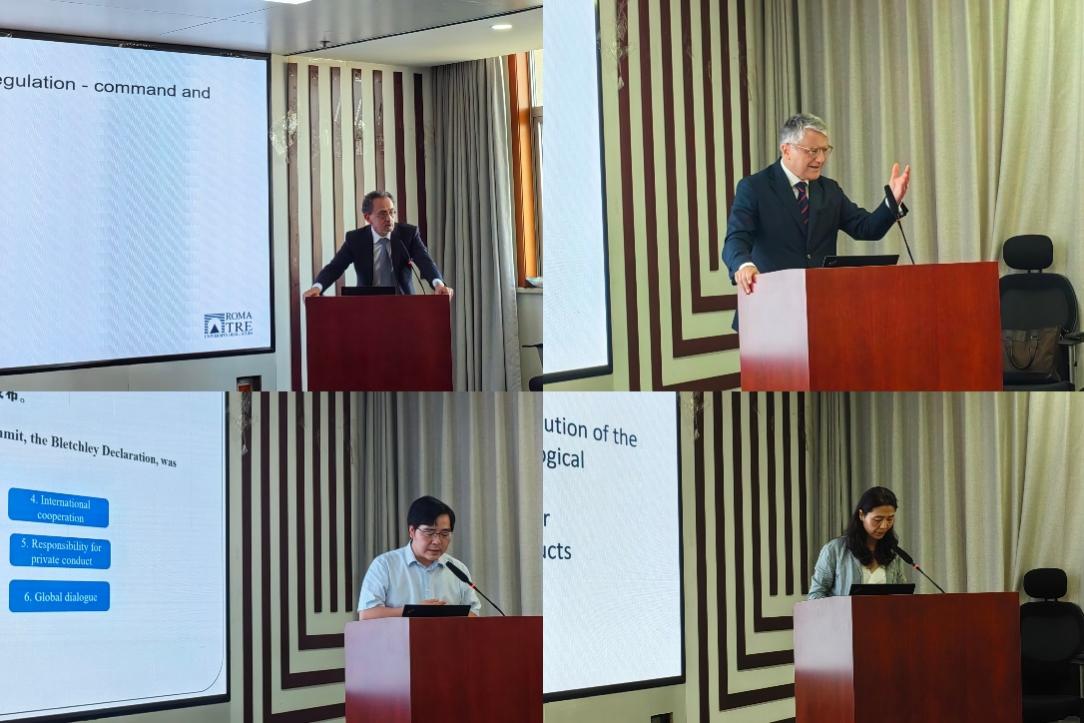
On June 25th, the Law School of Beijing Normal University successfully convened a thematic seminar titled "China-Italy Dialogue on Artificial Intelligence Governance" in Room 1822 Gao Mingxuan Academic Lecture Hall of the Rear Main Building. The event featured a lively exchange between Italian experts and scholars and the legal research faculty from the Law School, delving into the latest legislative trends, research findings, and the current state of AI technology governance in China, Italy, and the European Union. The seminar drew an enthusiastic audience, including numerous master's and doctoral candidates from the Law School.

The seminar was hosted by Professor He Ting, Vice Dean of the Law School of Beijing Normal University.
In his opening address, Professor Liang Yingxiu, Dean of the Law School of Beijing Normal University, highlighted that artificial intelligence stands as a pivotal technology poised to shape the future. Globally, leading countries and regions have prioritized the advancement of artificial intelligence as a cornerstone strategy to bolster national competitiveness and drive economic growth. Within the legal discipline, the pursuit of healthy development in AI governance through legal frameworks represents a frontier issue of contemporary legal scholarship. On behalf of the Law School of Beijing Normal University, he extended a heartfelt welcome to the Italian experts and scholars, anticipated rich outcomes from the seminar's exchanges, and expressed eagerness to leverage this Sino-Italian academic dialogue as a catalyst for ongoing collaboration with Italian academic institutions and businesses.

Professor Fabio Bassan of International Law at the University of Rome Tre, Italy, elucidated the European Union's approach to the collective governance of blockchain and artificial intelligence. His presentation outlined the EU's trio of regulatory frameworks for these technologies: self-regulation, collaborative regulation, and administrative directives and oversight. He traced the evolution of these regulatory models from traditional to modern, contemporary, and present-day approaches. Dr. Antongiulio Lombardi, Legal Director at Wind Tre, a prominent Italian telecommunications firm, and a specialist in technology and legal regulation, dissected the legislative landscape within EU member states following the introduction of the "EU Artificial Intelligence Act." He specifically highlighted the legislative initiatives of member states in the realms of criminal liability, social policy law, and labor law. Associate Professor Wu Shenkuo presented on the current state and future direction of China's AI governance under the banner of "The Essence and Significance of China's Global Artificial Intelligence Governance Initiative." Associate Professor Hu Junhong discussed the status quo of EU legislation on AI product safety and civil liability from a comparative law perspective, and shared insights from Chinese scholars on the matter of AI damage liability.

Afterwards, domestic and foreign scholars and participating students conducted in-depth discussions on the contents of the reports.
Concluding the event, Su Hang, a doctoral candidate at the Law School of Beijing Normal University, delivered a summarizing address on behalf of Professor Yuan Dasong. In his remarks, he delineated to the Italian delegation the pivotal National Social Science Fund project, "Research on the Rule of Law in the Digital Economy Governance System," under the leadership of Professor Yuan Dasong. Su Hang underscored that the swift advancement of artificial intelligence has ushered in unparalleled challenges and prospects, emphasizing the critical nature of international legal discourse and collaboration. In the era of digital transformation, he stressed, there is an imperative need for more cross-border scholarly exchanges and partnerships, such as the one fostered today, to facilitate the inclusive growth of nations in the governance of artificial intelligence.
In recent years, the Law School of Beijing Normal University has seen a steady intensification of collaboration with Italian universities and institutions. The School has entered into various levels of cooperative agreements with esteemed Italian counterparts, including the International Criminal Justice and Human Rights Institute of Siracusa, the University of Rome Tre, and the Università degli Studi di Luigi. Through initiatives such as joint degree programs, exchange programs, and international academic symposia, a robust bridge for scholarly exchange between China and Italy has been forged. The Law School of Beijing Normal University has emerged as a pivotal hub for academic dialogue between the Chinese legal community and Italian counterparts. The seminar, "China-Italy Dialogue on Artificial Intelligence Governance," was a resounding success, with scholars and experts from both countries deepening communication, exchange, and mutual learning. It showcased the cutting-edge research findings of Chinese and Italian academics in the realm of artificial intelligence technology and governance.
